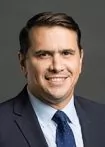Just days before a potentially landscape-altering hearing in a Miami federal courtroom at which lawyers were going to be forced to testify about the legal advice they had given their clients during the course of an internal investigation, the parties quietly backed into their own corners and the hearing was cancelled.
But the close call should send shivers down the back of company counsel conducting internal investigations of potential Foreign Corrupt Practices Act (FCPA) violations, especially as they and their outside advisers consider whether and how to participate in the Department of Justice's (DOJ) formalised FCPA enforcement policy.
The policy requires voluntary disclosure to and fulsome cooperation with DOJ prosecutors in exchange for a much sought after declination of prosecution. The costs of this new policy, however, are likely to be steep as illustrated by the court's decision in Sec. & Exch. Comm'n v. Herrera (2017), in which a federal magistrate judge in Miami, Florida held that a company that had given oral downloads of material from its internal investigation to the DOJ had waived work-product protection.
In 2012, General Cable, a global wire and cable manufacturer headquartered in Kentucky, discovered what it believed to be accounting irregularities in certain of its financial statements. General Cable retained Morgan Lewis & Bockius LLP to investigate, disclosed the potential misconduct to the Securities and Exchange Commission (SEC) and informed the regulator that it was conducting an internal investigation. The SEC opened its own investigation and General Cable announced it would cooperate with the SEC.
During the course of the internal investigation, Morgan Lewis attorneys conducted more than 40 witness interviews, and with its forensic accounting partners, reviewed reams of documents. Morgan Lewis attorneys met with the SEC on several occasions to provide briefings on the findings of its internal investigation. During one of these meetings in April 2013, Morgan Lewis showed the SEC a PowerPoint that outlined the investigative steps General Cable and its counsel had taken, and provided the names and dates of people interviewed, as well as a compilation of factual findings. Morgan Lewis also provided oral downloads of key witness interviews.
The agency ultimately filed charges against General Cable, which the company resolved in 2016 by agreeing to a cease-and-desist order and the payment of a $6.5m fine. Shortly thereafter, the SEC sued two individual officers of General Cable, Mathias Francisco Sandoval Herrera and Maria Cidre, respectively the former chief executive and chief financial officer of General Cable's Latin American Operations, alleging that the two concealed accounting errors at the Brazilian subsidiary from the company's executive management. During discovery, Herrera and Sandoval's lawyers filed a motion to compel disclosure of the Morgan Lewis witness interview memoranda and notes.
The oral downloads gave the SEC an unfair litigation advantage over the defendants because the SEC was provided at least indirect access to more contemporaneous statements of witnesses, most of whom were beyond the reach of the defendants' subpoena power. Significantly, they further claimed Morgan Lewis had waived work product protection by giving oral downloads of the witness interviews to the government during the course of its cooperation. Morgan Lewis argued that, because it had not provided the government with the actual notes or interview memoranda, but rather a factual, oral download, work product protection had not been waived.
US Magistrate Judge Jonathan Goodman, who under local court practice for civil cases was effectively acting as a district court judge, agreed with the defendants. According to Judge Goodman: "Because there is little or no substantive distinction for waiver purposes between the actual physical delivery of the work product notes and memoranda and reading or orally summarizing the same written material's meaningful substance to one's legal adversary", work product protection is waived. The court ordered that counsel provide to the defendants the interview notes and memoranda that were orally downloaded.
The court went on to hold that work-product protection is waived when protected materials are disclosed in a way that substantially increases the opportunity for potential adversaries to obtain the information (Niagara Mohawk Power Corp. v. Stone & Webster Eng. Corp., (1989)). It rejected the argument that because Morgan Lewis had not provided the actual witness notes and memoranda to the SEC, the privilege remained intact, calling the downloads the "functional equivalent" of possession of the actual notes and memoranda. The court also scheduled an evidentiary hearing at which Morgan Lewis attorneys would have to testify about its investigation and findings.
The attorney work-product doctrine protects materials prepared in "anticipation of litigation" by the company or its representatives, which includes attorneys and experts such as forensic accountants. Most documents created during an internal investigation by a company's counsel, or at counsel's direction, are considered to constitute protected work-product. Examples of protected work-product are witness interview memoranda and compilations of facts gathered by attorneys in the course of the investigation.
Ultimately, after a few weeks of motions, cross motions and meetings, the SEC informed the court that the Morgan Lewis briefings in 2013 concerned both the accounting matter and another matter, and that requiring the attorneys to be cross-examined would implicate information about an unrelated case. According to court documents, Morgan Lewis turned over the witness interview notes whose protection was found waived, but was not required to testify about them or the underlying investigation, and the defence team withdrew their objections. Herrera is thus a cautionary tale for those weighing cooperating with the DOJ or with any other regulator, with the hope of benefitting under the new FCPA policy.
The DOJ formalised the policy in the US Attorneys' Manual (USAM) in November 2017, and widely publicised the policy's presumption of declination with disgorgement for companies that voluntarily disclose corporate wrongdoing and cooperate with the ensuing government investigation. Announced by deputy attorney general Rod Rosenstein on 29 November 2017, the policy is "aimed at providing additional benefits" – i.e., benefits beyond those already specified in the USAM and US Sentencing Guidelines (USSG) – "to companies based on their corporate behaviour once they learn of misconduct".
Companies may earn a declination from prosecution, provided that they voluntarily self-disclose misconduct, fully cooperate with DOJ, and undertake timely and appropriate remediation. In fact, declination is presumed, provided there are no aggravating factors, such as a repeat offence or involvement by the company's executive management in the misconduct. Importantly, the policy outlines strict and exacting cooperation requirements. It demands, among other things, the "timely" and "proactive" disclosure of "all relevant facts".
This includes the facilitation of third-party document productions, the deconfliction of witness interviews where requested, the provision of translations of relevant documents where requested and appropriate and making overseas third-party agents, as well as current and former officers and employees, available for interview by DOJ where requested, appropriate and possible. Also, continuing DOJ's focus on the prosecution of individuals, the policy requires the disclosure of "all facts related to involvement in the criminal activity by the company's officers, employees or agents, and all facts...regarding potential criminal conduct by all third-party companies, including their officers, employees or agents".
SEC policies similarly encourage voluntary disclosures of potential wrongdoing by companies. Such cooperation almost always includes the expectation that the company will provide factual information learned from its internal investigation, which will necessarily include information provided by company employees in witness interviews. Although the DOJ and SEC generally refrain from requesting privilege waivers, willingly providing factual information from an otherwise privileged internal investigation implicates waiver of the attorney-client and attorney-work product privileges, even if the material is provided on the condition that its protections not be considered waived by the regulator receiving the information.
On the one hand, the policy is a welcome development because it formalises what has been an ad hoc and relatively opaque process of reaching a settlement with the DOJ for potential FCPA violations. Companies can now more effectively weigh the risks and benefits of coming forward to disclose misconduct, and the increased likelihood of a declination in exchange for coming forward may incentivise corporate cooperation. However, while certainty of a declination should encourage cooperation, the Herrera case illustrates the potential costs of cooperation. Willingly waiving a privilege, even if it is for a very good reason and benefits the company in the eyes of the DOJ or SEC, it is still a waiver of privilege.
When considering how and when to update the SEC or the DOJ about the status of an investigation, company and outside counsel should weigh whether the risk of a later finding that the update constituted a privilege waiver outweighs the benefit of cooperation. Plaintiff's attorneys or counsel representing individuals charged with violating the law will no doubt vigorously try to learn everything that the company uncovered during its internal investigation, as it provides, at the very least, a roadmap of the conduct at issue. And now, at least one court has found that full-blown cooperation with the government may carry with it a waiver of most privileges attached to the underlying internal investigation.
Previously published in financierworldwide.com.
The content of this article is intended to provide a general guide to the sbject matter. Specialist advice should be sought about your specific circumstances.


